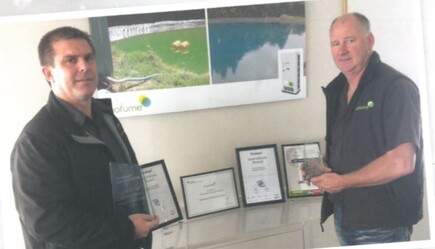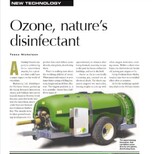Last Updated: Mar 8, 2021 St. John VuetilovoniPublished: Mar 26, 2020Sanitizing our homes, workplaces and public spaces is a key tactic in the fight against Coronavirus, to stop the spread of COVID-19. One method of sterilization is by using ozone. Ozone sterilization is com...
The inside of your car is dirtier than your toilet
February 7, 2022
https://www.stuff.co.nz/motori...Nile Bijoux16:15, Feb 03 2022
16
SUPPLIEDThe boot of a car has more poo particles than a toilet. Gross.A new study, completed by researchers at Aston University's School of Biosciences in the UK on behalf of Scrap Car Comparison, has fou...
Ozone gas as a virus decontaminating agent
August 24, 2021
Hudson et al. (2009) have developed an ozone gas-based portable apparatus to decontaminate the buildings such as the rooms in health-care facilities, hotels, etc using the anti-viral properties of ozone. They tested against 12 viruses, which include influenza, strain H3...
Ozone purifying units are increasingly being used in hotel and motel rooms to “purify” the air and remove stale odors caused by food and beverages, tobacco smoke, mold, mildew and other elements.About the size of a lunch pail, the units are small enough to be carried on ...
NZ Orchardist Magazine
October 1, 2017
Ozone Awards at Fieldays
1st Place - National Agricultural Fieldays Innovation award
1st Place - National Horticultural Fieldays Innovation award
2nd Place - South Island Agricultural Innovation award
Click the link to download the full article
https://mega.nz/#!JIgF2Kq...
Wine Grower Magazine
August 1, 2017
Rural News Report
July 10, 2017
National Agricultural Fieldays
June 15, 2017
Fieldays Innovations Awards winners
15 Jun, 2017 6:49pm 3 minutes to readHydratorq walked away with the Launch NZ Innovation Award and the Locus Research Innovation Award in the 2017 Fieldays Innovation Awards. Photo/Stephen Barker/Barker Photography.The CountryThe 2017 Innovation Awards were announced th...
Ozone 'vaccine' protects tomatoes against fungal attack
March 11, 2015
Exposing fruit to a burst of ozone gas is similar to 'vaccinating' them against fungal attack, scientists at Newcastle University have found.
The team, led by microbiologist Dr Ian Singleton and plant biologist Prof Jerry Barnes, of Newcastle University, has shown that exposing tomatoes to ozone before infecting them with fungus reduced lesion development by up to 60 per cent - potentially increasing the shelf-lif...









